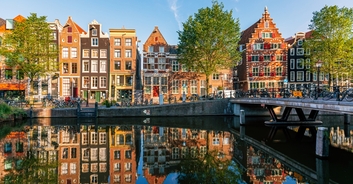A little girl was just seven years old when she was diagnosed with dementia following a routine eye test, and her parents have shared their story.
Isla Edwards, from Texas, went for a routine eye test at school in March 2021 when she was seven and ended up coming away with a diagnosis nobody expected.
The little girl had complained that her vision was a bit fuzzy at long distances and was told she may need some glasses to help her see.
However, when Isla's eyes were tested, she was immediately referred to a pediatric ophthalmologist where further tests were done, uncovering the shocking truth that she actually had an extremely serious condition called Batten disease.
Isla's mom, Jacqueline Stockdale, 34, revealed to Newsweek that Isla was a "perfectly normal, exceptionally healthy" child so they were shocked when they got the diagnosis.
Batten disease is a genetic condition that causes dementia during childhood, delayed development, seizures, blindness, and premature death.
She told the outlet: "At this time, there were no signs of anything being wrong with Isla. Her vision was a little fuzzy at long distances, but nothing out of the ordinary for a kid who was on the borderline of needing glasses."
After her initial test, the ophthalmologist recommended Isla see a specialist immediately, so Jacqueline drove her 90 minutes to Texas Children's Hospital in Houston the same day.
It was there that the doctors confirmed that Isla showed "early signs of pediatric macular degeneration" and did a genetic test, which involved swabbing the inside of her mouth, to determine the cause.
The test came back to show that she was positive for a diagnosis of neuronal ceroid lipofuscinoses, more commonly known as CLN3 juvenile Batten disease, which has no treatment or cure and is ultimately fatal.

"I was told that Isla would very soon lose her vision completely, develop childhood dementia and epilepsy, that her mental cognition would start declining, and that her physical abilities would also start to deteriorate," Jacqueline devastatingly revealed. "The life expectancy for a child with CLN3 was late teens to early twenties."
Jacqueline admitted that it was hard to fathom that her "perfectly healthy child" could have such a serious and life-limiting condition.
It is an incredibly rare condition, with just three in every 100,000 births in the US being affected by Batten disease, and while some patients can live into their early 20s, others can die as young as five years old.
In the three years since her diagnosis, Isla - now 10 - has lost around 90 percent of her vision, but her parents have said she doing well and has adapted by learning to read Braille.
Jacqueline added: "We are so proud of where Isla is at today. She has lost a substantial amount of vision since 2021, and she has about 10 percent left.
"But she still enjoys all the same activities such as swimming, dancing, video games, and has adapted to her current vision level."
They revealed that they do not treat Isla's vision loss as a "sad circumstance" or something that is "broken" or makes her "less than", adding: "If anything, it makes her a stronger, more amazing person, and we couldn't be prouder of who she is."
At present, vision loss is the only symptom Isla has displayed, though others with Batten disease can have seizures or difficulty walking.
Featured image credit: Getty Images












